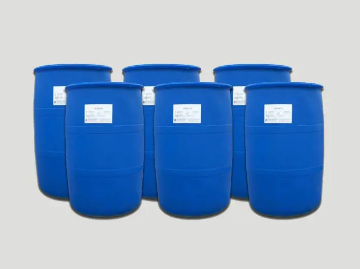
Surfactants are chemicals with the ability to regulate surface tension and are widely used in many fields, including biotechnology. The following will introduce several common applications of surfactants in biotechnology.
1. Applications in cell culture and bioreactors: In cell culture and bioreactors, surfactants are used to improve cell adhesion and growth rate. By regulating the surface properties of the extracellular matrix, surfactants can promote cell adhesion and diffusion, thereby increasing cell growth and product yield.
2. Protein purification and separation: Surfactants play an important role in protein purification and separation. By controlling surface tension and interfacial activity, surfactants can change the distribution and interaction of proteins in solution, thereby achieving protein separation and purification.
3. Liposome preparation and drug delivery: Liposomes are nanoscale vesicles composed of phospholipids and surfactants, and are widely used in drug delivery and gene therapy. Surfactants can regulate the stability of liposomes, drug release rate and drug delivery efficiency, thereby improving the bioavailability and therapeutic effect of drugs.
4. DNA extraction and genomics research: In DNA extraction and genomics research, surfactants are used to disrupt cell membranes and release DNA. Surfactants can change the solubility and charge state of DNA, thereby facilitating the extraction and separation of DNA. In addition, surfactants can also be used to improve molecular biology techniques such as PCR reactions and DNA sequencing.
5. Tissue engineering and regenerative medicine: In the field of tissue engineering and regenerative medicine, surfactants are used to regulate cell adhesion, proliferation and differentiation, and promote tissue repair and regeneration. By controlling surface properties, surfactants can improve the cell compatibility and biodegradability of biomaterials, thereby improving the biocompatibility and regeneration capacity of tissue engineering scaffolds.
6. Enzyme engineering and biocatalysis: Surfactants can regulate the catalytic activity and stability of enzymes, thereby improving the efficiency and selectivity of enzyme engineering and biocatalytic reactions. By reducing interfacial tension and increasing the contact area between enzymes and substrates, surfactants can improve the catalytic efficiency of enzymes and substrate conversion rates.
In short, surfactants have a wide range of applications in biotechnology, involving cell culture, protein purification, liposome preparation, DNA extraction, tissue engineering, enzyme engineering and other fields. By adjusting surface properties and interfacial activity, surfactants can improve cell adhesion and growth rate, improve protein purification and separation, enhance drug delivery and gene therapy effects, promote tissue repair and regeneration, and improve the efficiency and selectivity of enzyme engineering and biocatalytic reactions. We sincerely hope that these applications can contribute to the development of biotechnology.